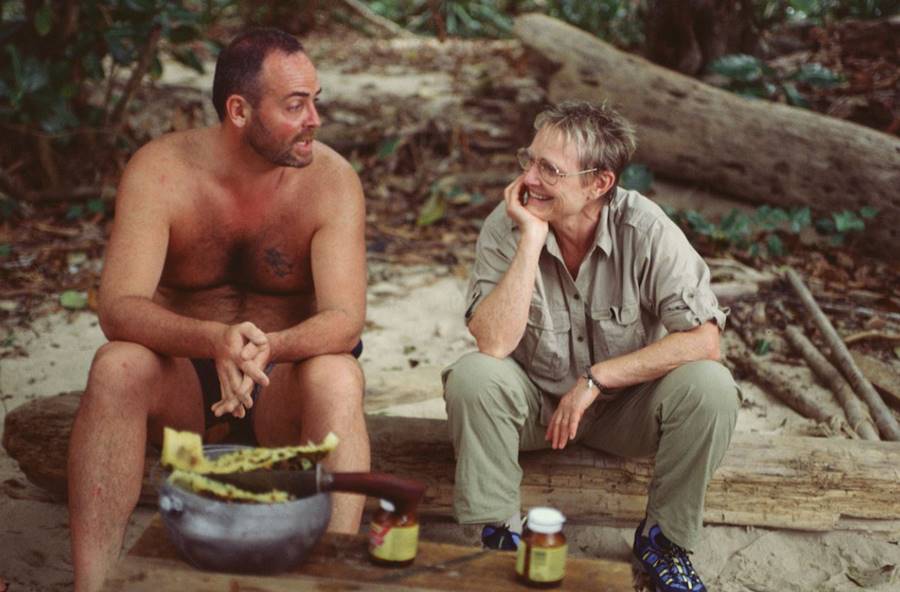
By Jae-Ha Kim
Chicago Sun-Times
June 8, 2000
Think “Survivor” is about survival of the fittest?
Not necessarily, according to the series’ consulting psychologist.
“It’s not about the fittest,” says Dr. Gene Ondrusek of the Scripps Center for Executive Health in LaJolla, Calif. “It’s about who’s the most adaptive. From what we knew of these participants, my colleagues and I had our early picks back in January. But these are not the people who ended up winning.
“Social environments aren’t static–they constantly change. What works early won’t work later. That’s why the most adaptive person wins.”
Based on the premise that the contestants will band together to survive, but also boot off one member on each of the 13 episodes until only one is left, the show has a titillating concept.
Experts predict that the weekly casting off of a castaway will take on a primitive dimension.
`
`It’s called scapegoating in group dynamics,” says Hylene S. Dublin, a Winnetka-based clinical social worker specializing in group therapy. “What happens is that everyone projects onto one person the least desirable aspects of themselves and their fears. Then rejecting that one person is as if they get rid of the troublesome part of themselves.”
Dublin adds that rather than becoming sympathetic to the person who needs the most help, members in group situations tend to become angry at the person who appears the weakest, complains the most or is the most demanding.
“People don’t like these qualities in themselves, so they punish others for them,” she says. “That’s the basis of prejudice and alienation.”
Despite the contestants’ ultimate goal of being the last one left on the island, the producers have hinted that several members paired off romantically.
Don’t expect these romances to last. Or even to be real.
“The competitive nature that has been built into the show would probably get in the way of sexual actualization,” says Bernard Beck, associate professor of sociology at Northwestern University. “And if it does, it could become a part of a tactic to build alliances, especially at the beginning of the show. When you have large numbers, there’s always the possibility of forming temporary alliances to clear the deck.”
Gays here are proud of winner on `Survivor’
By Jae-Ha Kim
Chicago Sun-Times
August 25, 2000
Richard Hatch walked around naked, caught a lot of fish and got on a lot of people’s nerves before winning the million-dollar prize on “Survivor.”
And Chicago’s gay community is loving all of the attention being lavished on a man one of his cast mates referred to as “Darth Gaydar.”
“I found myself rooting for him to win because there was an initial gut reaction to wanting `one of ours’ to win,” says Rick Garcia, director of Equality Illinois, Illinois’ statewide gay rights group. “There was also this sense of pride that some gay guy beat out a Navy SEAL. Many people in the military think that gays shouldn’t serve because we’re bad for morale and are too weak to serve. Richard is evidence that this isn’t true.”
But Richard also was portrayed as backstabbing, conniving and vindictive–even more so than the other cutthroat personalities on the show. “I think that’s why he won,” Garcia says.
Adds David Zak, artistic director of Bailiwick Repertory: “I don’t think Richard was singled out because he was gay. The show reduced all the people on there down to easily observed denominations. `Survivor’ was created for entertainment value , so I’m sure that how they edited the episodes had something to do with how everyone came off, too. But I think that anyone who can defy gay stereotypes and still win a million dollars deserves it.”
Frank Vesely, a stylist at the Hair Loft downtown, says he’s not worried about the general public identifying the gay population in general with the way Hatch was on television.
“In any group of people, there’s always an array of personalities and characters,” he said. “I think the portrayal of gay people is getting better on TV, but it takes time. Richard is just one side of what a gay man is like.”